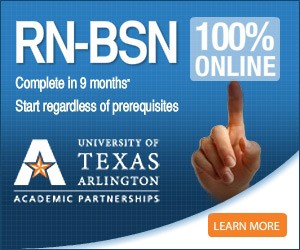Major changes are taking place in today’s health care system and the field of nursing is undergoing its share of changes as well. Health care providers are looking to deliver the best possible care to their patients while maintaining control of spiraling costs. Practicing nurses need to stay current with these trends so that they can better position themselves in the field.

One of the key changes that health care providers are implementing is improving the education of their workforce. More specifically, recent research and public policy recommendations stress the need for a more highly educated nurse workforce and have set a target to have 80% of registered nurses prepared at a minimum of a Bachelor of Science in Nursing (BSN) by 2020.
The recommendation is to require graduates from associate degree nursing programs to continue their education and acquire a BSN within ten years. This initiative, often referred to as “BSN in Ten,” is influencing leaders in the nursing community and has been endorsed by a number of nursing organizations, the U.S. Department of Health and Human Services and the Robert Wood Johnson Foundation, America’s largest philanthropic organization devoted solely to the public’s health. The nursing associations of both New York and New Jersey are in favor of requiring a BSN to enter the profession, while other states are considering similar measures. At the American Nursing Association meeting in June, 2010, 85% of attendees supported a proposal that nurses be required to have a BSN to enter the field.
As study after study has shown, increased nursing education positively impacts a range of healthcare issues, including fewer patient falls, better surgical outcomes and a decrease in the rate of “failure to rescue” events. Current research shows that nursing staffs with a higher percentage of BSNs are correlated with better mortality outcomes for patients. This correlation holds true even when accounting for other factors, such as the experience levels of doctors.
The trend towards a better-educated nursing workforce need not intimidate today’s working nurses. In fact, many of the obstacles in the way for RNs interested in getting their BSNs have been removed through the access to quality online degree programs. If the extra education seems daunting to nurses already burdened with a hectic life, the flexibility of online education means that they can complete their coursework at times that are most convenient within their professional and personal lives. Many online nursing programs are tailored to fast track RNs to their BSN without taking time away from their current jobs.
Additional education is not only a pathway to a brighter future in the profession, but it may be a requirement in states across the country soon. With the increased availability of accredited and affordable online RN to BSN degrees, the opportunities for well-prepared and more highly-educated nurses will only increase in the future.